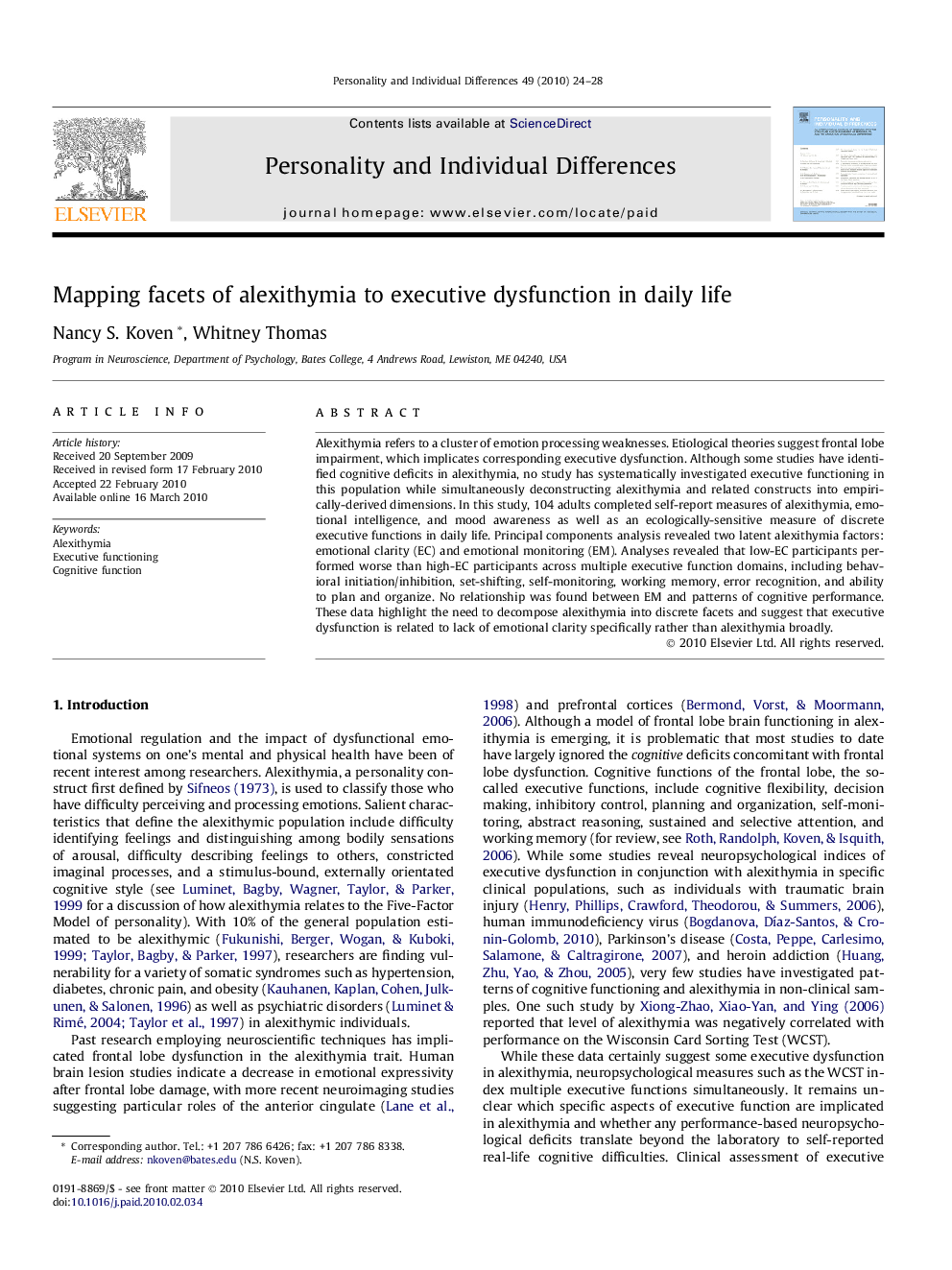| Article ID | Journal | Published Year | Pages | File Type |
|---|---|---|---|---|
| 891970 | Personality and Individual Differences | 2010 | 5 Pages |
Alexithymia refers to a cluster of emotion processing weaknesses. Etiological theories suggest frontal lobe impairment, which implicates corresponding executive dysfunction. Although some studies have identified cognitive deficits in alexithymia, no study has systematically investigated executive functioning in this population while simultaneously deconstructing alexithymia and related constructs into empirically-derived dimensions. In this study, 104 adults completed self-report measures of alexithymia, emotional intelligence, and mood awareness as well as an ecologically-sensitive measure of discrete executive functions in daily life. Principal components analysis revealed two latent alexithymia factors: emotional clarity (EC) and emotional monitoring (EM). Analyses revealed that low-EC participants performed worse than high-EC participants across multiple executive function domains, including behavioral initiation/inhibition, set-shifting, self-monitoring, working memory, error recognition, and ability to plan and organize. No relationship was found between EM and patterns of cognitive performance. These data highlight the need to decompose alexithymia into discrete facets and suggest that executive dysfunction is related to lack of emotional clarity specifically rather than alexithymia broadly.
